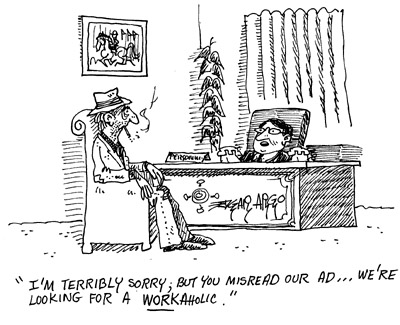
How do you expect to be able to answer a question correctly if you don't know what you are being asked? It's obvious that you can't answer a question if you don't know the question, but many candidates try anyway. They either don't fully understand what they're being asked or they aren't aware of how the interviewer wants them to answer the question. Of course, the most effective way to bridge this communication gap is to simply ask. After all, the only dumb question is the one you didn’t ask and in this case, could be what costs you your dream job. So, check your ego at the door and ask. However, it is also a good idea to get acquainted with the most popular interview categories which we have provided below. This will enable you to practice and devise a game plan on how to approach each type of question. If you decide to wing it, get used to rejection emails, calls, or letters. But for those looking to actually crack the interview and get hired, please read on.

In this post I will talk about 5 different types of interview questions, how to recognize them and the best way to answer them. Let's jump right in.
These questions seem to have been around forever, they're a way in which an interviewer can have a glimpse into a candidates thought process. Both Microsoft and Google are famous for using these types of interview questions and have been well documented in the following books written by William Poundstone; How to Move Mount Fuji and Are you Smart Enough to Work at Google? However, solving these questions actually comes down to more persistence than genius. Deducing the answer is just a step by step process of using what information you have been given and as well as identifying you're missing. The trick is to find information that seems out of place or irrelevant. Also, beware of the Average Joe answer which at first glance seems to be the most obvious, but it’s merely a setup. Lastly, be sure to verbalize your thoughts and show how you're working through the question. The most important aspect of this type of interview isn’t your answer, it’s how you approach the problem. This gives the interviewer insight into your thought process and can help steer you in the right direction if need be.
These questions can either be based on what people have learned from their previous experiences or what they naturally would do in a certain situation. They're often open ended questions that ask the candidate for examples from their past. When an interviewer asks a behavioral question they are hoping to learn more about how the candidate will react in a situation that they are likely to encounter as part of the job duties. To answer these questions correctly you should outline the task that you had to do or the situation you found yourself in. Next, you should tell them what you did and the results of the action that you took. Remember to be as specific as possible, vague answers will not impress interviewers as they may seem rehearsed, fabricated or inauthentic.
These questions are quick and short, they're often like little jokes. They rely on verbal ambiguity to challenge you. They may seem like there isn't enough information given to answer the question. The key to answering these questions is to try and find the turn of phrase, pun or situation that is being presented. Unfortunately, with these questions you either see the answer or you don't, you can't show the process of how you came to the answer. But taking a step back and repeating the question in your head is a good way to try and find the spark that will lead you to the answer.
In contrast to the lateral thinking questions, these questions encourage brainstorming. They're open ended questions that often don't have a single right answer. The key to answering these questions is to generate as many good ideas as possible, and to zone in on the best one and expand it further. If at all possible you should write down each idea and come back to each of them outlining the pros and cons of each. The interviewer here is looking at your creativity when presented with a problem and how you can apply innovative thinking to practical problems. Your aim here should be to supply the simplest and most unique solution possible.

These questions are named after their inventor Enrico Fermi. Fermi was a physicist that believed that anyone with a PhD in Physics should be able to use logic and a few facts to estimate anything. The PhD in Physics has been dropped recently and any candidate is expected to be able to estimate any unusual request made by an interviewer. The key to Fermi questions is to round the math (simplify it) and not to invent it. You need to use facts that you know, and after applying some logical steps come out with a reasonable guesstimate of the answer. With Fermi questions the interviewer rarely knows the answer either, they just want to see how the candidate works through the question. It is important to try and take all possible factors into account. Begin with something you know and work from there connecting as many dots as you can.
These of course, aren't all of the interview categories, but they're some of the most easily recognizable. Remember, the most important thing is to know what you're being asked! Providing a great answer to a question you haven't been asked is like bringing grass-fed beef to your vegan friends get together-good intent, negative impact.